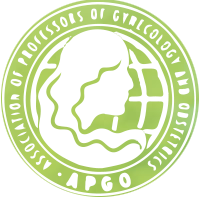A Global Approach to Medical Education
How a mission trip to Tanzania inspired one APGO member to develop a global health elective for residents
Photos provided courtesy of Karin Wollschlaeger, MD
For APGO member Karin Wollschlaeger, MD, a calling in women’s health education has always meant serving others – learners and patients – on a global scale. Throughout her career, Doctor Wollschlaeger, a clinical associate professor at Saint Joseph Hospital in Denver, Colorado, has traveled on medical missions to Ecuador, Peru, India, Nepal, Zimbabwe, and South Sudan, and spent a year prior to her residency working with World Relief in Cambodia. Her commitment to working with underprivileged populations around the globe has led her to embark on a new project she hopes will instill the same passion for service in her residents. Doctor Wollschlaeger is currently developing an ob-gyn global health elective at Arusha Lutheran Medical Centre (ALMC) in Arusha, Tanzania.
In April 2018, Doctor Wollschlaeger traveled 9,000 miles to Tanzania for a 17-day clinical mission trip sponsored by the Sisters of Charity Levenworth Health Systems (SCL Health) with which Saint Joseph Hospital is affiliated. The 15-person mission team consisting of Doctor Wollschlaeger, an internal medicine physician, two physiotherapists, a respiratory technician, a lab specialist, a biomechanical engineer, and several nurses worked with the ALMC surgical residency program, nurses and the nursing school to hold teaching sessions and grand rounds at the medical center during their trip. Doctor Wollschlaeger also participated in surgery and clinical work with the ob-gyn department at ALMC.



Collaborating with an institution halfway around the world comes with its share of challenges. While ALMC upholds a commitment to ongoing educational programs and teaching evidence-based medicine and practices, it is difficult to enforce compliance with new systems and practices once the mission team returns home. Furthermore, a lack of funding makes it difficult to acquire new instruments and provide regular education for faculty members and surgical residents. Doctor Wollschlaeger points out that these challenges only underscore the importance of SCL Health’s partnership with ALMC and the continuance of regular mission trips to assist with medical education programs and caring for the population.


However challenging travel and program logistics may be, the lasting emotional effects of their work are far more difficult to overcome. Living conditions in Arusha are extremely poor. Many local inhabitants live in a state of abject poverty, crowded into urban slums without consistent food security, basic services like clean water and drainage systems, and with limited access to public services such as health care and education. Through their clinical work and hospice visits, the mission team encountered several patients suffering from terminal illnesses in unfathomable conditions. You might imagine such dire circumstances would leave only hopelessness in its wake. However, in Doctor Wollschlaeger’s experience, quite the opposite is true. This – the unfaltering resolve, spirit and gratitude of the people of Arusha – is what she wants her residents to witness.




I want my residents to come away with an appreciation of the grace and strength shown by people suffering in extreme poverty in the final stages of their lives; an appreciation for their own education and skills, which they can use to help others; an appreciation for the access to health care which they are privileged to have; and an appreciation for the need of health care access for all women, regardless of ethnicity, religion or financial status.
Now, using her experiences from the mission trip and the relationships she formed at ALMC, Doctor Wollschlaeger is working to develop a month-long global health elective in Tanzania for ob-gyn residents at Saint Joseph Hospital. One of the biggest challenges she faces is maintaining continued interest and support from both the receiving institution and her own hospitals’ faculty and residents. She is also careful to make sure those involved in the elective understand the ethical implications of this type of commitment, and that it is not viewed as “medical tourism.” Then, of course, there are the obvious logistical challenges (housing, food, transportation), as well as limited resources (funding, time) and administrative hurdles (incorporating the elective into the residency schedule/call schedule/receiving institutions’ schedule).



Just as with their mission trip, the challenges are abundant, but Doctor Wollschlaeger is confident they can be overcome through careful planning, perseverance and compromise. Using resources and guidelines developed by women’s health organizations like the Association of Professors of Gynecology and Obstetrics (APGO), the Council for Resident Education in Obstetrics and Gynecology (CREOG) and the American College of Obstetricians and Gynecologists (ACOG), she is creating a course framework and learning objectives for course participants. Looking to other institutions that launched successful global health electives has offered valuable insight into what does and doesn’t work in international educational programs. She also credits the APGO Surgical Education Scholars Program (SES) for helping to build an understanding for practices and skills crucial to educational project development. Working on her SES project, “A Contraception Simulation Lab Developed for Ob-Gyn Residents in Catholic Hospitals,” she used evidence-based education approaches, utilized time with mentors to ask questions and address problems, and worked closely with SES colleagues to share ideas – all things she’s doing in her current project, as well.
In the end, the desired outcome of the elective – what residents will learn about their world and themselves – far outweigh the risks and challenges. Participants in the program will not only have ample opportunities for hands-on learning, but through their work will also develop character, professionalism, empathy and, as Doctor Wollschlaeger hopes, a lifelong passion for service. Even after eight mission trips and years of medical experience, she says, “I have learned that I can still be overwhelmed and shocked by poverty and illness. I spent a year living in Cambodia, and worked in South Sudan where conditions were worse, and I thought I had seen everything. But, I’m glad these things still affect me.” To learn more about the Arusha Lutheran Medical Centre, visit www.almec.or.tz.



